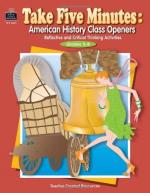|
This section contains 2,085 words (approx. 7 pages at 300 words per page) |

|
Sloth and Sin.
In the early nineteenth century most Americans believed that time was meant to be filled by work. They looked with disfavor on recreational pursuits, including sports, dancing, drinking, music, theater, and art. This stern view of life had religious, technological, economic, and political roots. In part it was a relic of the powerful Puritan work ethic that spread from New England across the upper West, rooted in the belief that material success gained by constant labor was a sign of heaven's favor and reinvigorated by the preachers of the Second Great Awakening who warned their listeners that indulgence in idle pastimes was sinful. Leisure was also a casualty of the inventions that increased the pace of daily life. People traveled faster (by railroad and steamboat), communicated faster (by telegraph), worked faster (in mechanized factories), and even ate faster, shocking European observers such as Frances Trollope...
|
This section contains 2,085 words (approx. 7 pages at 300 words per page) |

|


